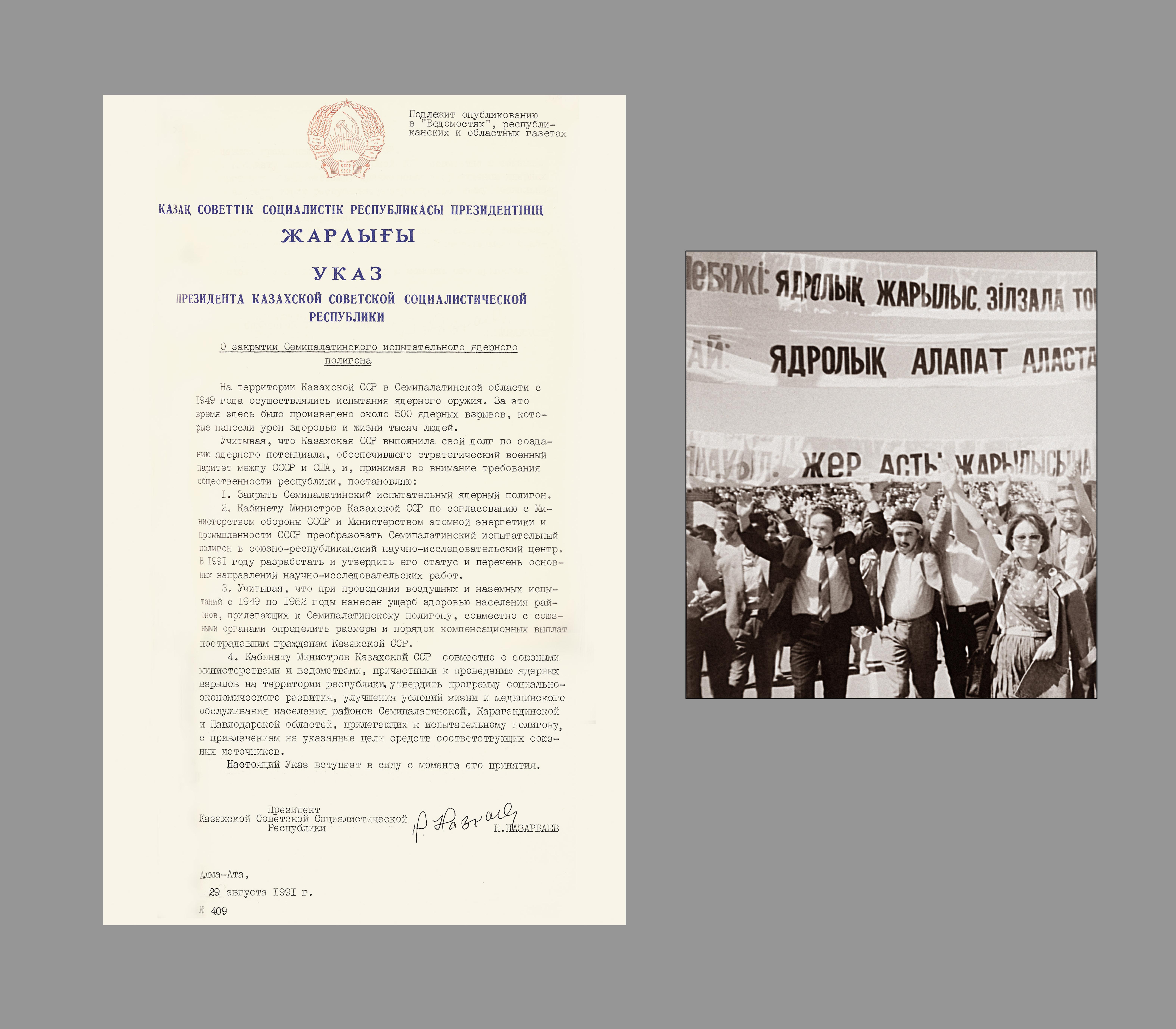On the occasion of the International Day against Nuclear Tests (Ivo Šlaus)

On the occasion of the International Day against Nuclear Tests, declared by the UN on the initiative of the First President of Kazakhstan, Nursultan Nazarbayev, and to commemorate the 30th anniversary of the closure of the Semipalatinsk test site, Croatian nuclear physicist, author of 369 scientific publications and monographs in the field of nuclear and elementary particle physics, Academician, Dean of the Higher School of Diplomacy Ivo Šlaus shared his opinion on Kazakhstan's contribution to strengthening international security in the field of nuclear disarmament and non-proliferation. Ivo Šlaus is the founder of the Croatian branches of the Club of Rome and the Pugwash Movement of Scientists, the European Society of Physicists and the International Nuclear Data Committee of the International Atomic Energy Agency, his personal significant contribution to international efforts against nuclear weapons testing is well known in expert circles.
Ivo Šlaus
The Bulletin of the Atomic Scientists put the Doomsday clock at 100 seconds to Midnight - two consecutive years: 2020 and 2021. The Doomsday clock includes threats due to wars and due to the destruction of the natural and human capitals. Today nine countries possess nuclear weapons. Four - later independent states in the USSR - had nuclear weapons: Ukraine (about 5,000 warheads), Kazakhstan (about 1,500) and Belarus (81). Kazakhstan had more nuclear weapons than France, UK, China and India have today. Though nuclear weapons have not been used after Hiroshima and Nagasaki in 1945 numerous test particularly by the USSR and the USA have produced considerable damage. In 1991 President Nursultan Nazarbayev closed the Semipalatinsk Test Site.
In December 2009, the UN General Assembly unanimously accepted a resolution put forward by Kazakhstan proclaiming August 29, the day when in 1991 President Nursultan Nazarbayev signed a decree on the closure of Semipalatinsk Test Site, as the ‘International Day against Nuclear Tests’. Recognizing the negative impact of nuclear testing on human life and the environment, as well as the importance of ending nuclear tests as one of the key means of achieving a nuclear-weapon-free world, the Resolution sets out to commemorate a significant date in Kazakhstan’s – and, indeed, - the world’s history. Kazakhstan was among the first to remove nuclear warheads. On the 30th of May 1995 the last nuclear test warhead, which was located in a gallery on the Semipalatinsk test site, was destroyed. Finally Kazakhstan had got rid of its nuclear inheritance forever.
The contribution of Kazakhstan and President Nursultan Nazarbayev to peace is outstanding. It is not only dismantling nuclear weapon system and terminating nuclear tests – it is building the entire peace structure: participating in international treaties and initiating many international actions strengthening peace, sustainable development and mutual co-operations. Kazakhstan has signed the START Treaty in 1992 and the Nuclear Non-Proliferation Treaty in 1993 and then the Chemical Weapons Convention, and the Comprehensive Test Ban Treaty 2001. On March, 21, 2009 the Treaty on Nuclear Weapon Free Zone in Central Asia, signed on September, 8, 2006 in Semei, Kazakhstan, went into force.
In his article “Global Peace and Nuclear Security” in 2010 President Nursultan Nazarbayev proposed to create a “nuclear club,” which would include the states that de-facto possess nuclear weapons. The club and each of its members should commit themselves to acting exclusively in coordination with the UN Security Council. In 2012, Kazakhstan initiated the ATOM project, an international awareness campaign that encourages the global community to ban nuclear weapons and their testing. It also defended its position on nuclear disarmament at the 2012 Seoul Summit. Kazakhstan played an important role in the conclusion of the Iranian nuclear deal by hosting two rounds of negotiations between Iran and the P5+1 in 2013.
At the initiative of Kazakhstan, the UN General Assembly at its 70th Session on Dec. 8, 2015 adopted the Universal Declaration for the Achievement of a Nuclear-Weapons-Free World, co-sponsored by 35 countries. Kazakhstan did even more: speaking at the 4th anti-nuclear summit in Washington on March 31, 2016, Nazarbayev defined the central task of mankind as ridding the world of the threat of war as such and to eliminate its causes.
In 2019, as part of the fifth Astana Club meeting, a new unique international platform was created – the Global Alliance of Leaders for Nuclear Security and a World Free of Nuclear Weapons. As part of this initiative, in 2020, Nursultan Nazarbayev Foundation and the Institute of World Economy and Politics (IMEP), organized a major online conference on international security and the resumption of the global nuclear dialogue. Present President of Kazakhstan Kassym-Jomart Tokayev continues the anti-nuclear position and peace endeavors of Kazakhstan’s foreign policy. Speaking at the 75th anniversary of the United Nations in the Fall of 2020, President Tokayev made an important observation: in the shadow of the pandemic - two more serious challenges are approaching us. One of them is the crisis of nuclear non-proliferation and disarmament.